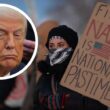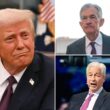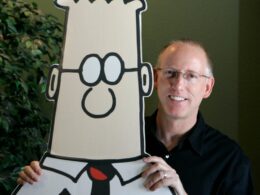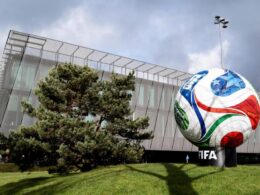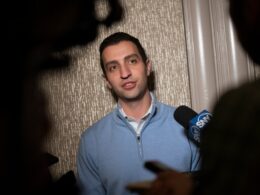In the early 20th century, as millions of African-Americans fled the racial terror and economic oppression of the Jim Crow South, they arrived in northern cities with hope in their hearts and resilience in their bones. This movement — known as the Great Migration — was one of the largest internal shifts in American history. It gave rise to new communities, new institutions, and new demands for justice.
In 1910, in response to this wave of change, the National Urban League was born in New York City to help Black families navigate the challenges of urban life and claim their rightful place in the American promise.
Now, more than a century later, we return to our roots with the opening of the Urban League Empowerment Center in Harlem — a neighborhood that has long been the cultural and political heartbeat of Black America. This is not just a new headquarters. It is a $250 million investment in equity, opportunity, and community-driven progress.
The Empowerment Center is a model of what inclusive development should look like. It includes 170 units of affordable housing, reserved for families earning between 30% and 80% of the area median income. Among the residents will be young adults supported by the New York Foundling’s program for foster youth who have aged out of the system — a population too often left behind. By providing stable housing and access to services, we are helping these young people transition into adulthood with dignity and support.
The Center also features retail and office space for minority-owned businesses and nonprofits, creating a vibrant ecosystem of entrepreneurship and service. It will generate more than $300 million in economic activity, with a commitment to hiring local residents, women, and people of color. This is not development for development’s sake — it is development with purpose.
But the significance of this project goes beyond economics. The Urban Civil Rights Museum in Harlem, set to open in 2026 during the U.S. 250th anniversary commemorations, will be New York City’s first museum dedicated to the American civil rights movement, with a unique focus on struggles in Northern urban environments.
The museum’s mission is to interpret and share stories of justice and civil rights, offering immersive educational experiences that empower visitors to become agents of change. The museum will feature a permanent interactive installation, rotating exhibitions, and retail and café spaces. The museum has partnered with acclaimed firms Local Projects, Kubik Maltbie, and Pacific Studio to design its exhibitions and visual identity.
The Empowerment Center is home to other cultural institutions like the Studio Museum in Harlem, Virginia Union University, and the United Negro College Fund, preserving Harlem’s artistic legacy while nurturing the next generation of creators and leaders.
We have also built a 10,000-square-foot conference center for workforce development, civic engagement, and leadership training. This is where ideas will be born, where movements will be nurtured, and where the future of equity will be shaped. It is a space designed not just for meetings, but for momentum.
In today’s political climate, where civil rights protections are being rolled back and programs to promote diversity, equity, and inclusion are being dismantled, the Empowerment Center is a beacon. It is a declaration that we will not be erased, that our history matters, and that our communities deserve investment — not neglect.
The National Urban League has always been a bridge — between aspiration and achievement, between policy and people. This center strengthens that bridge. It connects Harlem’s storied past to its promising future. It connects our national mission to local impact. And it connects generations of struggle to generations of success.
We are proud to call Harlem home. But more importantly, we are proud to build something that belongs to Harlem. This is not just our headquarters — it is Harlem’s Empowerment Center. It is a place where residents can live, work, learn, and lead. It is a place where equity is not just a goal, but a reality.
As we open these doors, we invite the nation to witness what is possible when development is driven by values, when history is honored, and when community is placed at the center. The Urban League Empowerment Center is not the end of a journey — it is the beginning of a new chapter.
Let us write it together.
Morial is president and CEO of the National Urban League.
